When we built the site in October 2011, it was a vast expanse of degraded wasteland. We erected iron posts on the hard bedrock, put up fences, and dug holes to catch rainwater, using pickaxes. We collected household garbage from the city, carried it to the wasteland, and placed it 10 cm thick inside the fence. We carefully covered the plastic bags with sand and soil to prevent them from flying away. Actually, this sand and soil is very important for greening.
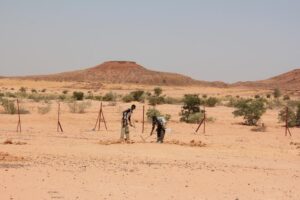
October 28,2011
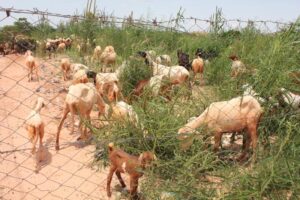
September 07,2012
When the rainy season arrives, strong winds blow in, blowing sand and leaves away. The sand and leaves get caught in the garbage and turn into a place of accumulation in the wasteland caused by soil erosion. At the same time, plant seeds in the garbage sprout with the arrival of the rainy season, producing crops in the first year and grasses in the second and later years, which can be used for livestock feed and human consumption. At the end of the rainy season, Fulbe herders bring in their livestock, which eat the plants as fodder in the fence. The only thing I ask of the local herders is that they keep their livestock inside the fence at night for two weeks, even if they run out of fodder, so that their manure can fall out.
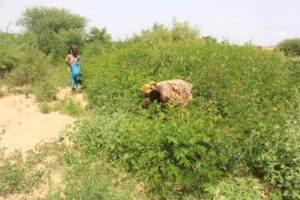
August 27,2017
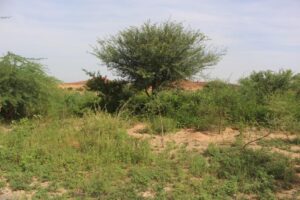
September 24.2017
If the herders keep this promise, the trees will start to grow inside the fence. The germination rate of tree seeds in this area increases as they pass through the stomachs of livestock. The livestock ruminate and return the contents of their stomachs, sometimes spitting out large seeds as they do so.
We have not been able to go to Niger for field research since April 2020, but the local staff take photos with their smart phones and send them to me every week. The rains started in June this year, 2021, and the site is covered with green again this year. In a little while, the rainy season will be over and the Fulbe livestock will come into the fence.
In fact, from now until mid-November, the surrounding fields will be filled with millet and the farmers will be busy harvesting. It is during this time, harvest season that the most conflict occurs among farmers and herders. Livestock eat the crops, and this crop damage causes massive conflicts in the region.
When livestock enter the fence and stay inside at night, they do not go to the crop fields. When the livestock stop crop damage, the people can avoid large-scale ethnic conflicts in the region. Our “cleaning and greening” project aims to develop greening technology based on urban garbage use, and peace keeping in the local community.
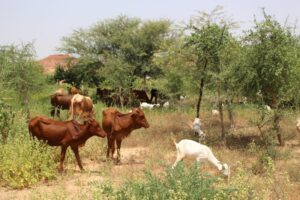
September 28,2019
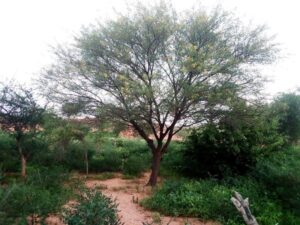
September 06,2021



 Select Your Language
Select Your Language


